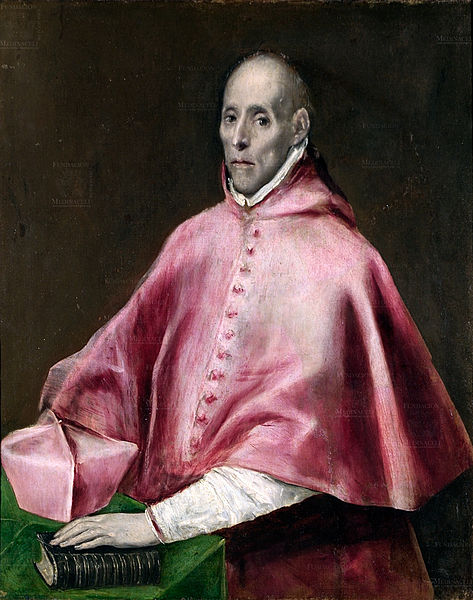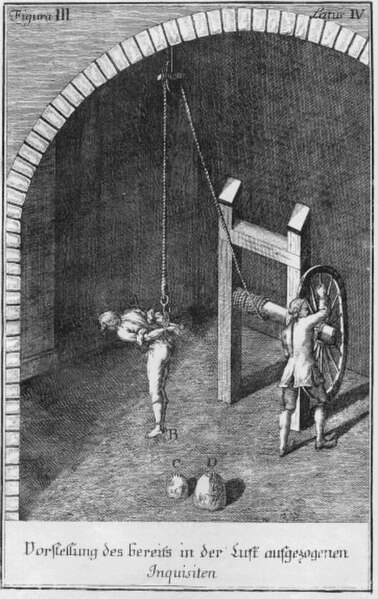Grand Inquisitor was the lead official of the Inquisition. The title usually refers to the chief inquisitor of the Spanish Inquisition, even after the reunification of the inquisitions. Secretaries-general of the Roman Inquisition were often styled as Grand Inquisitor but the role and functions were different.
Tomás de Torquemada, Grand Inquisitor of Spain (1483–1498)
Diego de Deza, Grand Inquisitor of Spain (1498–1507)
Adrian of Utrecht, Grand Inquisitor of Spain (1518–1522)
Juan Pardo de Tavera, Grand Inquisitor of Spain (1539–1545)
The Inquisition was a judicial procedure and a group of institutions within the Catholic Church whose aim was to combat heresy, apostasy, blasphemy, witchcraft, and customs considered deviant. Violence, torture, or the simple threat of its application, were used by the Inquisition to extract confessions and denunciations from heretics. Studies of the records have found that the overwhelming majority of sentences consisted of penances, but convictions of unrepentant heresy were handed over to the secular courts, which generally resulted in execution or life imprisonment. The Inquisition had its start in the 12th-century Kingdom of France, with the aim of combating religious deviation, particularly among the Cathars and the Waldensians. The inquisitorial courts from this time until the mid-15th century are together known as the Medieval Inquisition. Other groups investigated during the Medieval Inquisition, which primarily took place in France and Italy, include the Spiritual Franciscans, the Hussites, and the Beguines. Beginning in the 1250s, inquisitors were generally chosen from members of the Dominican Order, replacing the earlier practice of using local clergy as judges.

Tribunal at the Inquisitor's Palace in Birgu, Malta. Eymeric's manual recommends that the accused be seated on a backless low bench.
Pedro Berruguete, Saint Dominic Guzmán presiding over an Auto da fe (c. 1495). Many artistic representations falsely depict torture and burning at the stake during the auto-da-fé (Portuguese for "Act of Faith").
A copper engraving from 1685: "Die Inquisition in Portugall"
Strappado








